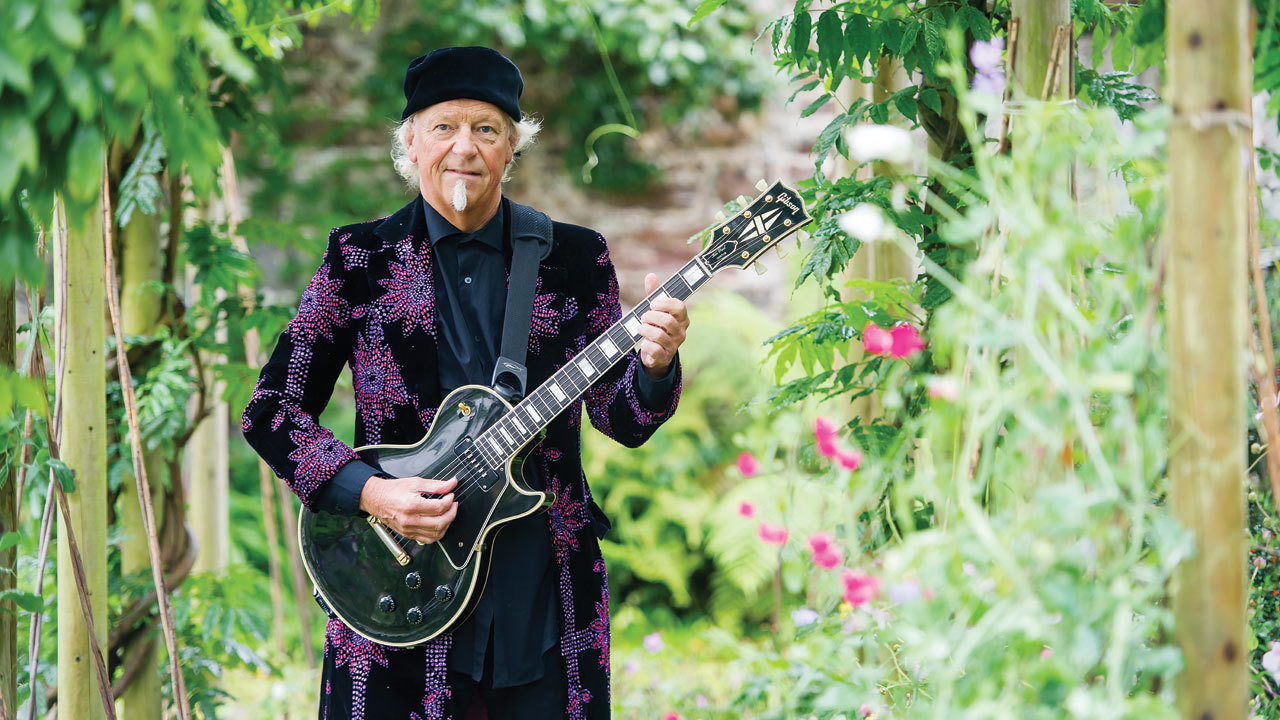In a flash, Martin Barre replies: “July.” The question was when did he realise he was being sidelined in the band to which he had devoted himself for over four decades. His follow-up is telling. “It would be two thousand and… you probably know the year more than I do,” he continues, grasping for detail.
“I tried to eradicate it from my mind,” he concedes, laughing.
It was July 31, 2011, at Munich’s Circus Krone that Jethro Tull played their last show, sending Barre into an uncertain future. “Me and Doane [Perry, Tull’s drummer of 27 years] were told weeks before ‘the event’,” he explains with mock portentousness. “It was a shock and an unpleasant position to be in because I had no plans.
“When you play with Jethro Tull, you’re committing everything to doing that job. You’re committing the year you’re doing it, and the next year, and the year after that, and hopefully you’ve projected as much into the future as you can foresee. And then when the carpet’s pulled from under your feet, you have absolutely nothing.”
Ringmaster Ian Anderson had been planning the next act for some time before that night at the circus in Munich, and was already beginning to exclude the guitarist from his next billing well in advance.
“There were suspicions that something was going to happen,” muses Barre with the gift of hindsight. “There was a lot of talk of touring Thick As A Brick in its entirety, and I know Ian was talking to the other guys [John O’Hara, piano; Dave Goodier, bass] about playing it and I naïvely thought it strange that he hadn’t talked to me about it. I thought, ‘He doesn’t need to because he knows that I know all the music and the other guys would have to learn it.’ This was about a year before Jethro Tull finished and, of course, the penny dropped eventually.”
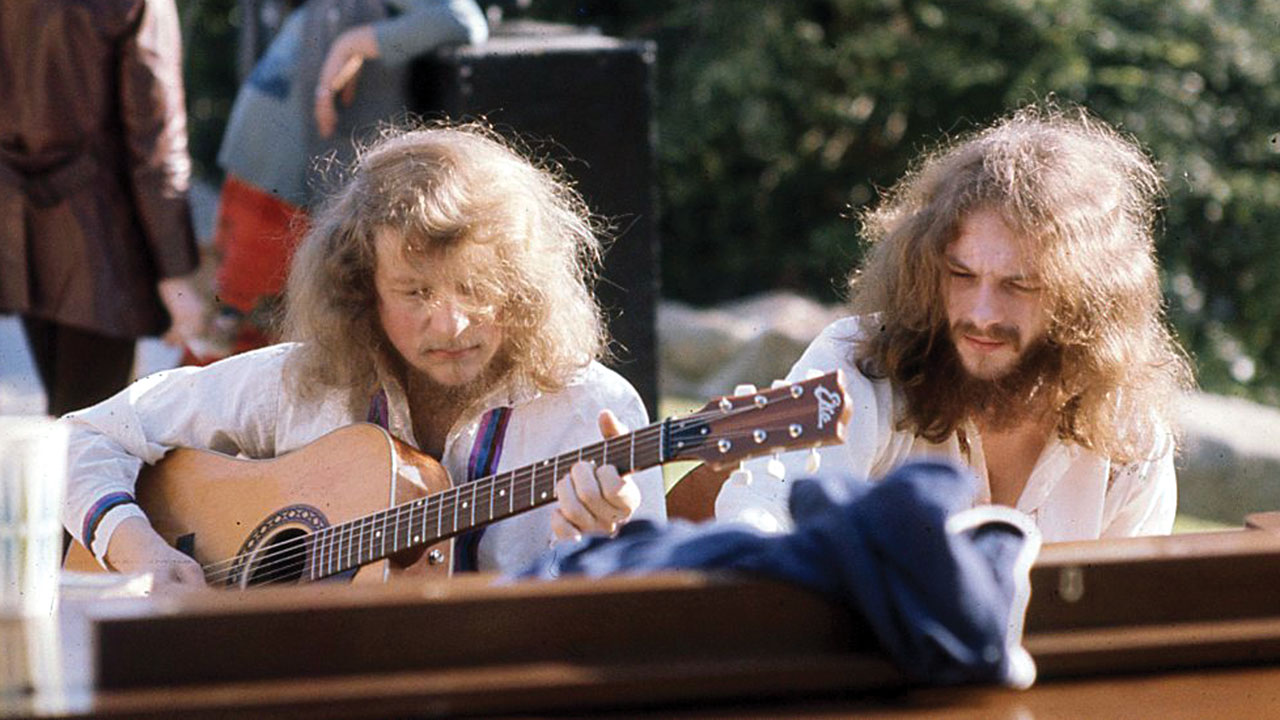
The shock and subsequent tremors from this seismic shift in Barre’s life were profound and left him in upheaval, needing to jump-start his music career from a standing stop. In recent times he has progressed and is more philosophical about ‘the event’.
“I can talk about it now. Four years ago I would’ve spent the rest of the afternoon being really depressed, but now I can talk about it as something that’s just fact,” he reveals with typically self-deprecating detachment.
The feelings of all those concerned are not a matter of public interest or debate – after all, these were relationships and friendships that endured for decades, and continue to do so in some cases. The guitarist sums up his current state of mind on the episode: “I’m not going to say how I felt or how it happened and all the emotions behind it on all sides because that’s private and people don’t need to know. Plus, I’m past it. I’ve moved on completely. I won’t let that affect my life any more.”
Martin Lancelot Barre joined Jethro Tull in 1968. Over the Christmas of that year, he learned the material that would become their second album, Stand Up. He and Anderson represented the core of the band over the course of another 19 studio records, culminating with solstitial synchronicity in 2003’s The Jethro Tull Christmas Album.
While the ‘Tull sound’ is instantly recognisable, due in large part to Anderson’s distinctive voice, scholarly lyrics and virtuoso flute, the stylistic shifts over the decades have been many and varied: from folk to blues, prog to medieval minstrelsy, radio and MTV-friendly rock to metal. Metal? Really? The Grammy Committee famously caused a stir when they nominated Crest Of A Knave for Best Hard Rock/Metal Performance in 1989. The controversy is the stuff of legend, with Metallica fans baying for justice, but Barre is proud of the award.
“It was unfortunately misplaced in a very awkward section of music they’d come up with,” he explains. “They’re certainly two different categories of music and they unfortunately threw them together for that one year. It laid it open to misinterpretation.
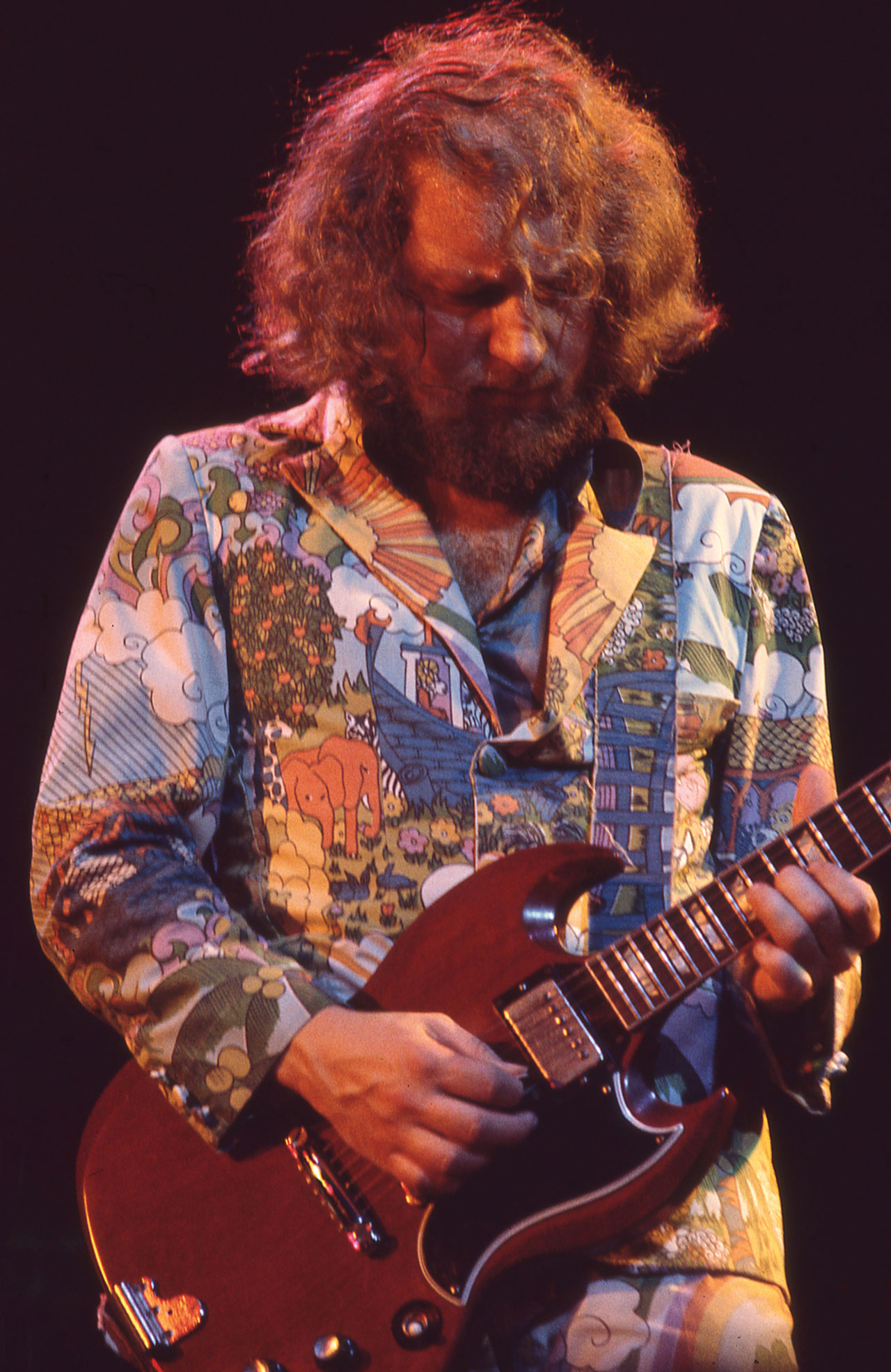
“Metallica fitted the bill for that genre and were expected to win, which is why we didn’t go to the ceremony. We thought, ‘Well, we got a nice little certificate that says we’ve been nominated – that’s nice, I’ll put that on the wall.’ Then, on the night, we got a phone call and I was completely bowled over. I was mainly upset I wasn’t there. At that one period in time, when something really significant and important happened to the band, we weren’t there to enjoy it. That went down badly, of course. People assumed we couldn’t be bothered to be there, which just wasn’t the case.”
At home in England, far from the glitz and pageantry of the ceremony, something had to be done to mark the band riding the crest of a wave.
“My wife, being a very resourceful person, phoned everybody we knew,” recounts Barre. “I found out at 11 o’clock at night, and by half past 12 we had about 30 people at our house, drinking champagne and raving! It was the right thing to do. I’m really proud of it and I’m glad we had the one little window in our career where we had a good album, we were fairly important in the music world, and people recognised us for that alone.”
Although classifying Jethro Tull as metal would be a genre leap too far, they have consistently reinvented their sound. Looking back now on that diverse catalogue, does Barre have a particular fondness for any era?
“I loved them all!” he exclaims like a proud parent. “I always perceived that Tull had a constant – that would be me and Ian – and they had variables, people that joined the band. Some of them left for various reasons. They came and went but they left behind their influences for the period that they were in the band.”
So these changes in musical style didn’t come from Anderson as the main writer, but by the cross‑pollination of ideas between the line-up at any given time, and the many journeyman collaborators?
“Certainly Dave Pegg brought in a huge folk influence. David Palmer brought a classical influence. Eddie Jobson, maybe prog?” he ponders, quizzically. “I don’t know. His style of music was very, very upfront on the A album. His virtuoso playing was a really big influence, particularly for me, but also for Ian. His songwriting was guided by taking on board these extra musicians and it was a refreshing thing for all of us to have these challenges.”
- Ian Anderson on Jethro Tull and the importance of looking forward
- Martin Barre Discusses His New Solo Album
- Martin Barre’s dilemma: Ignore Jimmy Page or lose Aqualung solo
- Martin Barre’s 5 Essential Guitar Albums
Not all of the musical challenges Jethro Tull faced were so refreshing. With age and experience come the ravages of time, the physical slowing down of the body, and for a singer, a change in timbre that isn’t always for the better. In later years, Anderson’s voice diminished in power and range. This must have presented difficulties not only for the singer but for the band as a whole, particularly when they were playing old favourites live.
“It’s something Ian dealt with himself and it was very, very gradual,” explains Barre sympathetically. “It’s a terrible thing to have happen to you that you don’t want, isn’t your fault and affects something you do with great passion and great importance in a huge way. Everybody has to be prepared to make compromises. It was only in the late years of Tull that it was really becoming apparent. Ian got round it by singing the lines slightly differently and altering the keys in a couple of cases, but then you’re chasing your tail really.”
Barre, who recently celebrated his 70th birthday, feels that he’s getting better with age and has been spared such debilitating distress.
“I feel I’ve improved a huge amount since Tull finished, just as a player and certainly as a writer. My fingers at the moment are good, but you get people of my age with arthritis and it must be really horrible to want to play so badly and some physical thing prevents you from doing what you really love.
“People say they’re happy with their body. Well, I say I’m happy with my fingers,” he chuckles wryly.
There’s a pathos in Martin Barre’s voice when he’s talking about his sparring partner of 43 years. Now that his future as a solo artist is presenting itself and the hurt has dissipated, does he feel that there’s any chance of reconciliation and musical reunion at some point in the future?
“We don’t communicate and we’re very established in our minds that we’ve gone separate ways,” he counters, putting such notions firmly in the drawer marked ‘Nostalgia’. “Every month, every year we’re going in different directions. At first I was always aware of what Ian was doing but now it doesn’t affect me at all because I’m so far removed musically that we don’t clash. We’re not in competition.
“With my band I’m sort of doing what Jethro Tull was trying to do 40 years ago – a really dynamic, powerful band getting into the marketplace – and I think I’m encapsulating that spirit of Tull from the very early days when there was all this enthusiasm and we were fighting for every inch of concert space. Ian’s going in a more formal direction, more instrumental, using playback, using string quartets. Musically, we’re not connected at all.
“We had a long time together. I don’t have any regrets and hopefully that’s the same for everybody. I meet up with some other guys from Tull and they’re very good friends – Clive Bunker and Paul Burgess. That friendship is still there.”
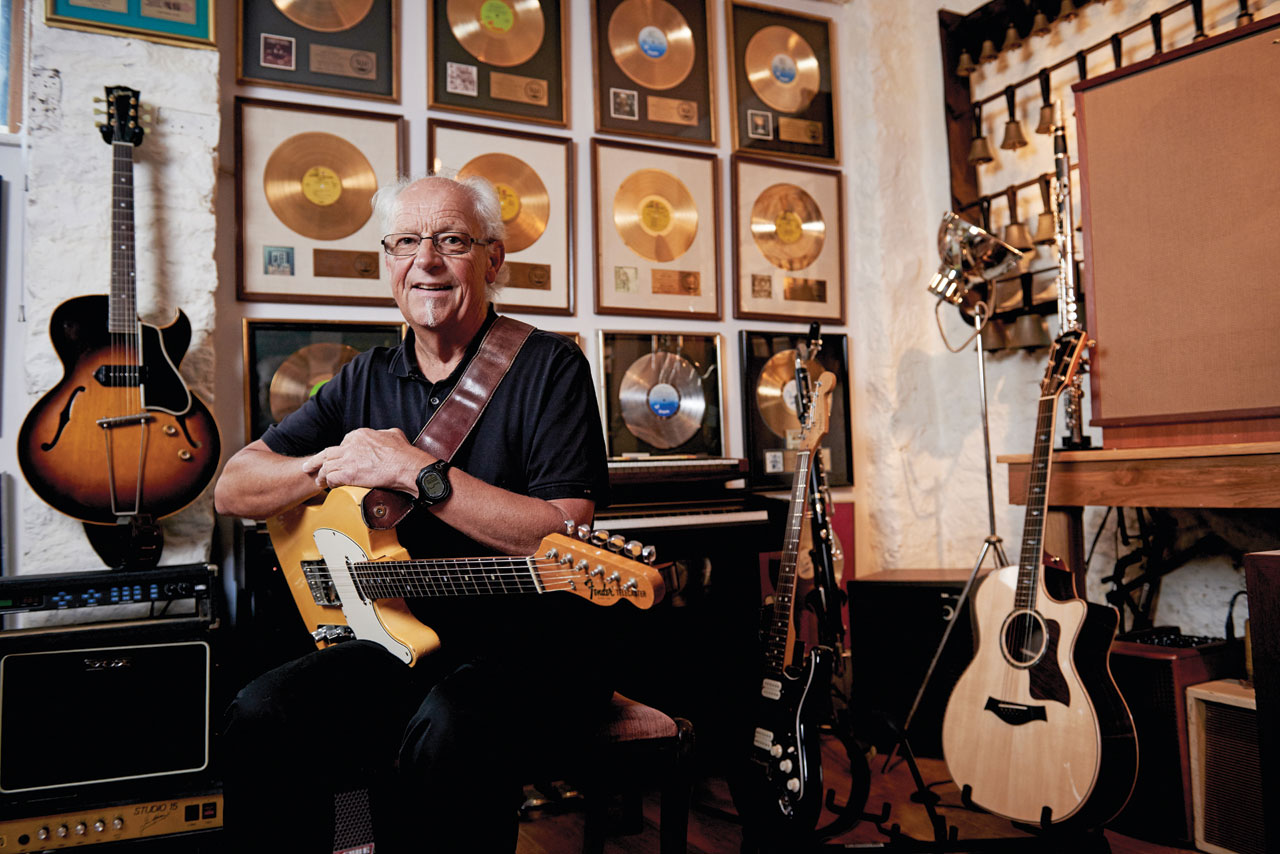
Some of the friendships that have endured the storms over the years are about to bear fruit as part of the half-century celebrations. The guitarist reveals to Prog that the Martin Barre Band are planning an extensive series of 50th-anniversary shows in 2018.
“It’ll represent the whole history of Jethro Tull from the first album, This Was, all the way through to the modern day,” he explains.
“I’ve got two, if not more, ex-Jethro Tull musicians to be guests. They’re significant ex-members who were there for a long time and the audiences will know their names. I’ll be playing flute on the few songs that require it, and it’ll be a whole evening dedicated to the music of Jethro Tull. It will be concerts in the UK, Europe and America. The first gig that’s going to showcase this presentation will be Cruise To The Edge in February 2018.”
The announcement comes in the wake of his own milestone 70th anniversary. Martin Lancelot Barre has fought for his right to party and he’s going to damn well exercise it.
“I was 70 years old a month ago and it was a big deal for me – I celebrated it like there was no tomorrow! I had three parties and I thought, ‘You know what? It’s something to stand on a chair and shout out loud.’ It’s the same for everybody – whatever milestone there is in life, it should be celebrated, because otherwise what’s life about?
“It’s the same in music. If there’s a 50th anniversary, that’s a really amazing accomplishment. I’m really glad that you’re doing this article because it’s historically really important and that’s why I’m planning something because I presume that’s all that’s going to happen. I’ve heard of nothing else either by the record label or anybody at all. I’m not going to let it pass. It’s going to be a labour of love. It’s a musical adventure I’m really going to have fun with.”
Fans can expect the unexpected from these shows. Barre is not a man to rest on past glories – he’s constantly rearranging much-loved songs, dusting them down from tip to toe to give them a fresh livery. The Tull tunes he picks for his setlist are often not the usual suspects, and he doesn’t like to tour without having fresh material to present to an audience.
“I always put two, three, four new bits of music in every time we go on the road because that was always the problem in the latter days of Tull – we had such a restrictive setlist and we were going back on tour with virtually the same setlist year after year. Even the fans were beginning to moan!
“As loyal as Tull fans are, it was beginning to be a bit of a problem for me because there’s so much Tull music that hasn’t been played for years and years, and really deserves to be.”
It’s apt that a musician famed for helping bring medieval stylings into the rock format should be undergoing his own renaissance. He’s relishing reconnecting with the audience on his own terms, rather than from behind the cape of his erstwhile frontman.
“I’ve rediscovered I actually like talking about music,” he enthuses. “In Tull, the five guys had a lot to say musically and a lot to say about themselves, about the band, but Ian traditionally became the spokesperson. The whole journey is re-establishing yourself in communication and talking to people. At the end of the show I go and sign CDs, which Tull never did, and I get to meet fans. It’s a rebirth and I’m enjoying everything about it.”
The people Barre has been meeting, connecting or reconnecting with have been relaying to him just what was so important about Jethro Tull, why the band endure, and why they should be celebrated 50 years on.
“The feedback I get is that people grew up with Tull and they really appreciated whatever it gave them – it was a positive experience,” he divulges. “The legacy of all those albums will be there forever. I don’t think it has a sell-by date, which a lot of modern music does. Why it does is not for me to explain or to analyse but I believe that’s the case. Obviously that’s why I exist as a working musician, as does Ian, because that legacy carries on and younger audiences are being introduced to the music through their elders and they want to come and see the concerts.”
So how does Martin Barre assess that past from a personal perspective?
“That’s 43 years of my life and it’s important,” he says. “I don’t brush it off lightly or as if it never happened. It has an important place in music history but I make a living by being a musician, by what I’m doing today and what I’m planning for the future.”
May the ice of the new day be as thick as a brick.
For more, see www.martinbarre.com.
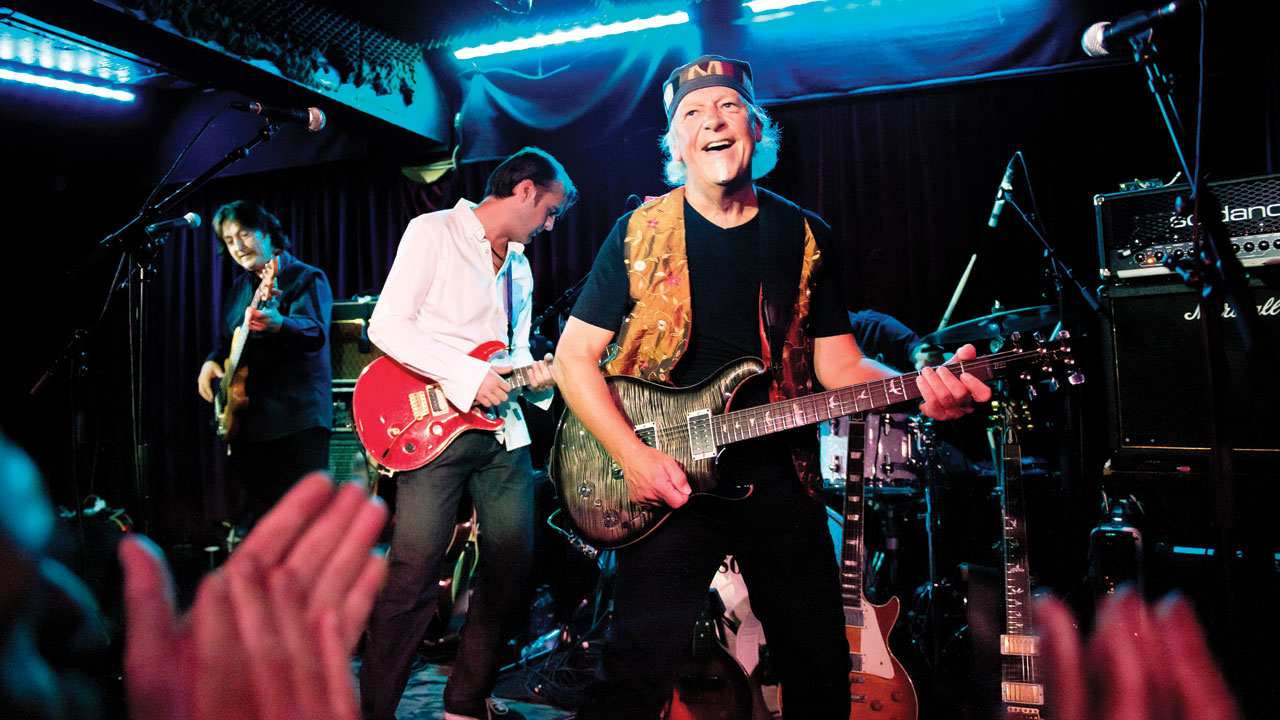
A New Day
What does a legendary guitar player from one of the most successful prog bands of all time do to give him that Sunday feeling?
“Sunday’s like every other day to me. I’m in the studio. I’m getting new music written to do another CD and hopefully record some tracks while we’re on tour in the States for 10 weeks. We’ve got two new drummers – Paul Burgess in the UK and Jonathan Joseph in the US – so I’ve been getting material to them and sorting that out. Ordering up vinyl versions of Back To Steel. Finishing off a DVD. There’s quite a lot going on!”
Barre is in a good place right now. His new-found freedom has been hard-fought, but with his wife, he’s set up a cottage industry from scratch.
“I’ve started from zero,” he reveals. “Five years ago I had nothing. No record label, no agents, no infrastructure, no travel agent, no connections – the few I tried to resurrect weren’t interested. I was like every other band in the UK starting out. I could get my foot in the door cos I’d say, ‘Hi. This is Martin Barre. I used to play with Jethro Tull,’ and they’d go, ‘Oh yeah,’ but that’s as far as you’d get. It’s a level playing field for all new music.”
Recent releases and live shows have shown a harder edge to Barre’s playing than the more supportive role he often held.
“I’ve always been that sort of guitar player but it wasn’t always used within Tull. Now I’ve got so much freedom and I’ve got a lot more to play so I’m incredibly busy. The brake’s been released and I really have felt I have a lot more to offer musically.”
While Old Charlie runs off with the handle, the Martin Barre locomotive continues to roll on, tirelessly playing to audiences across the US and Europe. His band can now draw on a repertoire of around 50 titles, old, new and refurbished.
“There’s always going to be a combination of Tull songs, like Black Satin Dancer, Sealion, Nothing To Say. Fat Man is now a rock song instead of a folk song. I just pick out songs that I really love from those days and either we do them as per the record or I rearrange them. Sometimes I completely take them apart and rewrite them. I’m not spoiling the music, I’m trying to enhance the song and present it in a fresh way. If we all fancy doing a Porcupine Tree song [Blackest Eyes], we’re gonna do it just cos we want to.”
A wise man once wrote: ‘It was a new day yesterday but it’s an old day now.’ Martin Barre is still ploughing a furrow into the future.
“I always say, ‘Tomorrow’s the most important day of my life.’ I want to establish myself. I’m not resting on that history of music – I’m looking ahead.”
Living in the past is so passé.
